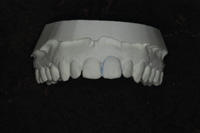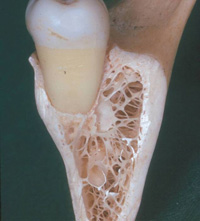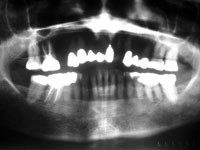It’s the end of the doctor’s day, and, thank goodness, the crises have been few. The doctor’s goal, which was just to make it through the day, has been met. Now, with a little bit of luck, tomorrow will be equally as “successful.”
Successful? If making it through the day is your definition of “success,” we need to talk. As practice management consultants, we are unfortunately perceived as professionals who only help practices in “crisis.” Talk about shortsightedness! We would much prefer to help you achieve success, which we define as the progressive realization of a predetermined goal, then assist you to experience a more purposeful life that transcends success, which we call “significance.” We define significance as having meaning, which is often hidden and unique to the individual.
Our job is to show you the way, to help you realize that your goals need to go beyond paying the bills. You need to have a purposeful impact on both your staff and your patients. Why does Demi Moore work out with a personal trainer? Isn’t she already stunning? Why does Tiger Woods practice at the driving range after winning the Masters golf tournament? Because these are people conditioned to want more than success; they want to experience significance!
Dentists who have built monster practices—who have gone beyond survival to achieve success and then significance—have done so deliberately, not accidentally. Their values, their goals, everything they do, says, “This is my life’s passion.” But all this must come from the gut. Borrowed values and borrowed goals have no power. Your vision, your understanding of what you want your practice to be, must be defined, written down, and communicated to every member of your team. It is your practice’s heart and soul. And it will be the cornerstone of all of the programs you implement to achieve the goals that move you toward a profound existence.
BEYOND SURVIVAL
When you first graduated from dental school, you had a clear understanding of why you chose dentistry as your life’s work. Then you became a business owner, which is the “shock and awe” phase that follows professional school. Statistics show that 80% of all small businesses fail within the first year, and, if you’re a dentist, the challenges are staggering. You’ve just spent years and hundreds of thousands of dollars on an “advanced” education that didn’t include a single course on how to influence an employee, how to talk to a real patient, how to tell the difference between deception and despair, and how to manage your own feelings of helplessness and isolation. The years you spent perfecting your clinical skills have absolutely no relation to—or bearing on—owning and managing a business. You find yourself starting all over again, with one major difference; you now owe a lot of money to a lot of people.
More than likely, you eventually learn to juggle the duties of dentist, visionary, and manager by trial and error. You are going through the “survival” phase of your growth whether you want to or not, and if you want to have a successful practice, none of this can be delegated. You flounder at first, but you learn through trial and error how to get by. You begin to make sense of the administrative and economic components of your business. You may even begin to manage them effortlessly over time. Did your dental education prepare you for these additional roles? Probably not. It’s a colossal challenge, to be sure.
So you roll up your sleeves, grit your teeth, and focus on keeping all the balls in the air. But wait! Not all your patients accept the treatment you recommend. Therefore, you’re not generating the income you anticipated. At the same time, you find yourself distracted by such “incidentals” as hiring, training, and motivating your staff. Surviving isn’t as easy as you thought.
AT LAST—SUCCESS!
Eventually you get the knack of juggling dentistry and managing a business. The basics of paying the bills are no longer your primary concern, and you become comfortable with the predictability of your earnings and your ability to deliver optimal oral care to your patients. Your operating policies and programs are working, you’ve learned how to handle employee relations, and, in general, life is starting to look good. It looks like you’ve achieved success, doesn’t it? Once you’ve attained a comfortable level of financial reward, you’re successful, right?
Sadly, for many business owners, this is not only the second phase of their business—first survival, then success—but it is the final phase. For these dentists, their “vision” has been fulfilled, and there is nothing more to achieve. In most cases, this isn’t because these professionals are incapable of the third phase; they are simply unaware of the strategies and rewards of moving up into “significance.”
BUT WAIT . . . THERE’S MORE!
What can be better than the financial rewards of “success,” you ask? How about the personal and professional fulfillment of “significance”? When a business owner moves from success to significance, the results are unbelievable. You not only attract more patients, but they are the type of patients with whom you enjoy working—patients who accept your recommended treatment plans, who agree to your financial arrangements, who refer their friends, and—get ready for this—who are grateful for the treatment and care you provide.
If that sounds great, there’s more. When you experience significance, you feel professionally fulfilled. You are not only delivering optimal care, but your work and your contribution to your community become meaningful.
So what’s the secret of moving from success to significance? It all begins with a vision—yours. As the business owner, you must define the vision of your practice, and you must be the one to inspire your team to achieve that vision. Ask yourself: what do you want your practice and your life’s work to be? What do you want to accomplish? What is your definition of clinical excellence? You cannot create this vision by reading a book or borrowing it from a friend or peer. Once again, borrowed visions have no power, and visions that aren’t shared with those people who are integral to its accomplishment—your team—will never be realized.
WHAT IS A VISION?
Your vision is your governing philosophy, it is your “promise” to your patients, it is your integrity. It means never compromising on the standards of excellence you were trained to provide. How you define your vision and what programs and processes you put in place to attain that vision is your “brand.” It is the sum of all the characteristics—tangible and intangible—that make you and your practice unique.
But be careful. You are creating your brand every day, whether it is deliberate or not. You must have a plan to create the brand you want. Accidentally creating a brand you’re trying to avoid can be disastrous, which means you need a strategy to make certain that your brand is understood and executed consistently throughout all aspects of your practice. That’s because every time patients have an experience with your practice, it creates a perception in their mind, from the initial telephone call to how they are greeted when they arrive for posttreatment follow-up. The actual dentistry can be secondary in the minds of your patients. If your receptionist is rude, if your office manager is unhelpful when a patient needs financing, if your policies are always changing, the negative impact on your brand can destroy the clinical standards of excellence you have worked so hard to achieve.
A well-defined brand is compelling and powerful and key to patient loyalty. It is what distinguishes you from all the other dentists in your area. It is what you promise to deliver to your patients.
Here’s an example. We have a client with 2 practices in Southern California. His vision was to deliver comprehensive dental care to patients in a “spa” environment. With this vision as his “promise” to his patients, he developed the team, the programs, and the services that created a dental spa experience. He and his team provide high-quality dentistry every day along with massages and pedicures. As you might imagine, his patients look forward to their visits. And so, not only are his patients having their expectations met, but this dentist and his staff are realizing their highest personal and professional potential. This is the ultimate success in creating a powerful brand. Do they feel significant? You bet.
SIGNIFICANCE IS FULFILLMENT
Try to imagine the fun of having mastered what you do professionally. You’re proficient, you’re competent, and your day is purposeful. You aren’t afraid to take risks, and you’re not afraid of change or growth. And, of course, there are the financial rewards. All successful brands have been developed through definition, consistency, and leadership. Unfortunately, many dentists think, “Forget it, I’m not a leader. All I want to do is my dentistry.” But being a leader isn’t about wearing a cape and being able to leap tall buildings in a single bound. It’s simply about knowing and communicating your promise and positively influencing everyone with whom you come in contact. Remember that you are the business owner. Leadership is not something you can assign to someone on your staff. If you are truly that uncomfortable with the leadership role, you may be happier working as an associate for someone else.
The truth is that leadership is not difficult. It is learned behavior that can be broken down into manageable steps. Followers expect 4 things from their leaders: honesty, competence, vision, and inspiration. So try this “to-do” list. Begin by defining the daily activities that occur within your practice. Set attainable goals for each activity. Develop a plan to meet those goals. And lastly, show up. Right attitude and right action are all you need. For example, if your vision includes helping your patients complete essential treatment, then implementing programs to facilitate this (such as offering outside patient financing through a company like CareCredit) is an execution of your brand and will help you realize this goal.
Every day, all you need to do is put one foot in front of the other. Be methodical. Be consistent. Be resilient. Once you begin reaching your goals consistently, you can start thinking about what it will take to feel significant in your professional environment. This involves completely integrating all your operating systems and management policies. It requires you, your staff, and your patients to interact in a positive, consistent, and predictable manner.
CONCLUSION
Here’s a little secret: for many of you, feeling significant will be an awakening. You will become invigorated, transformed, reborn. You will have new meaning in your life knowing that you are acting deliberately and purposely and positively affecting the people in your life. And, ultimately, you will find that the monetary rewards become secondary in importance to the grateful, heartfelt words of thanks you receive from your staff and patients. You might even find yourself thinking that going to dental school wasn’t such a bad idea after all.
Now that is significant.
Olivia Straine is a certified professional behavioral analyst and vice president of Straine Consulting. She develops the concepts and writes the workbooks for the widely attended seminar and educational program Straine offers and writes the popular monthly publication Practice Tips. She developed and launched the Straine Web site in 1998 and is instrumental in developing tools that will streamline the way Straine clients interact with the company.
Kerry Straine is president and CEO of Straine Consulting and has been in business and financial management for more than 25 years. He is a certified professional behavioral analyst and has conducted more than 1,000 workshops and seminars for practice owners, dental staff, and other dental professionals over the past 15 years. In 2001, Sullivan-Schein Dental selected him as a practice management instructor for its advanced professional education program. He can be reached at (800) 568-7200.











